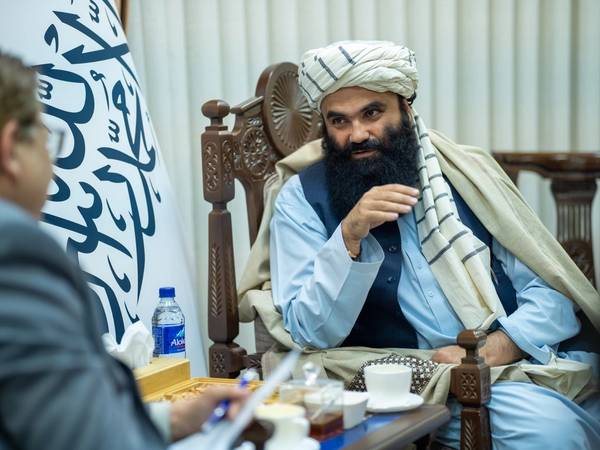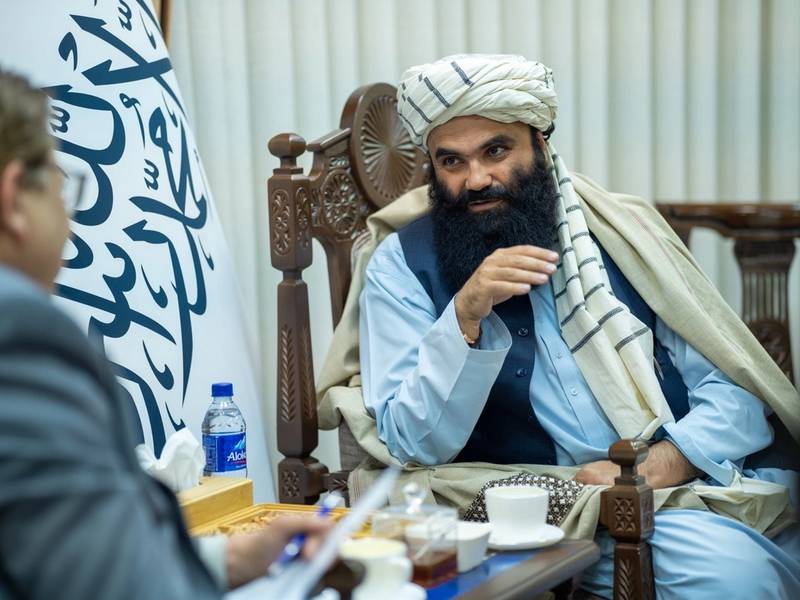Amid escalating tensions and clashes between India and Pakistan, Taliban officials have assured Mohammad Sadiq Khan, Pakistan’s special envoy in Kabul, that Islamabad need not worry about its western border with Afghanistan.
According to sources cited by The Express Tribune, the Pakistani envoy’s visit to Kabul aimed at securing peace along the Pakistan-Afghanistan border and was deemed successful.
As hostilities between New Delhi and Islamabad intensified, both Pakistan’s and China’s special envoys travelled to Kabul for high-level discussions. The envoys met with key Taliban leaders including Amir Khan Muttaqi, the Taliban’s Foreign Minister; Sirajuddin Haqqani, Minister of Interior; and Nooruddin Azizi, Minister of Industry and Commerce.
During the meetings, Haqqani underscored the significance of strengthening regional ties, stating that from Kabul’s perspective, progress in political and economic relations, as well as regional understanding, is possible only through mutual respect and constructive engagement.
Sources said that Haqqani gave firm assurances to both Chinese and Pakistani envoys that Afghanistan’s border with Pakistan would remain peaceful. The Taliban’s Foreign Minister also pledged continued support for Islamabad amid the heightened regional tensions.
With India launching strikes on Pakistani territory following a deadly militant attack in Kashmir that left 26 Indian nationals dead, Pakistan has shifted its military focus squarely towards its eastern frontier. At the same time, it remains engaged in fighting Tehreek-e-Taliban Pakistan (TTP) militants and Baloch separatists. Islamabad has accused the Afghan Taliban of harbouring and supporting these groups allegedly in alignment with India, claims the Taliban strongly deny.
The Taliban have reiterated that Afghan soil will not be used against any neighbouring or regional country.
Sadiq Khan’s visit to Kabul came amid growing concern in Islamabad over potential threats from Afghanistan, especially after the Taliban issued an unusual condemnation of the Kashmir militant attack. Despite long-standing ties with groups such as Lashkar-e-Taiba, Jaish-e-Mohammed, and the Majid Brigade, the Taliban refrained from condemning India’s retaliatory strikes and instead called for negotiation and dialogue to de-escalate the crisis.

